BMW 7er Reihe vs Hyundai IONIQ 9 - Unterschiede & Preise im Vergleich
Vergleiche Leistung, Kofferraum, Verbrauch und Preis auf einen Blick.
Finde jetzt heraus, welches Auto für dich die bessere Wahl ist, BMW 7er Reihe oder Hyundai IONIQ 9?
Der BMW 7er Reihe (Limousine) kommt mit einem Plugin Hybrid oder Diesel MHEV-Motor und Automatik Getriebe. Im Vergleich dazu ist der Hyundai IONIQ 9 (SUV) mit einem Elektro-Motor und Automatik Getriebe ausgestattet.
Beim Kofferraumvolumen bietet der BMW 7er Reihe 540 L und der Hyundai IONIQ 9 338 L – je nachdem, wie viel Platz du brauchst. Wer mehr Leistung sucht, muss wählen ob die 571 PS des BMW 7er Reihe oder die 428 PS des Hyundai IONIQ 9 für die eigenen Bedürfnisse genügen.
Beim Verbrauch liegen die Werte bei 1 L pro 100 km für den BMW 7er Reihe und 19.90 kWh für den Hyundai IONIQ 9.
Preislich startet der BMW 7er Reihe ab 118200 €, während der Hyundai IONIQ 9 ab 68500 € erhältlich ist. Vergleiche alle Details und finde heraus, welches Modell besser zu deinem Leben passt!
BMW 7er Reihe
Der BMW 7er verkörpert Luxus und Eleganz auf höchstem Niveau und beeindruckt mit seiner fließenden, modernen Formgebung. Die hochwertige Innenausstattung bietet Komfort und innovative Technologie, die jede Fahrt zu einem Erlebnis macht. Die Kombination aus dynamischen Fahreigenschaften und einer ruhigen, kraftvollen Performance unterstreicht den Anspruch des Modells, sowohl als Luxuslimousine als auch als fahrerorientiertes Fahrzeug zu überzeugen.
Details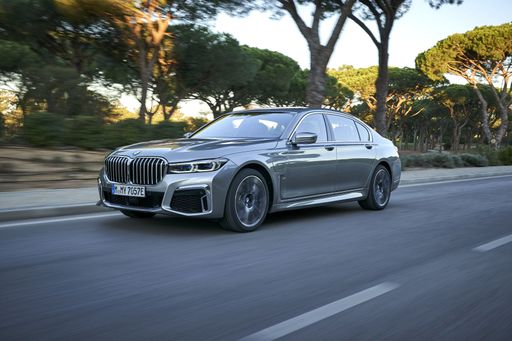 @ press.bmwgroup.com
@ press.bmwgroup.com
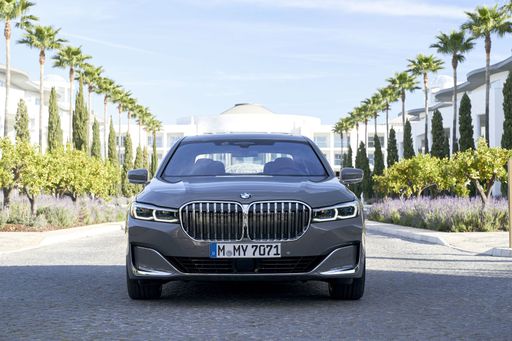 @ press.bmwgroup.com
@ press.bmwgroup.com
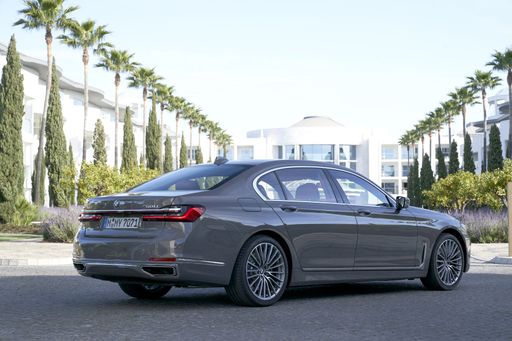 @ press.bmwgroup.com
@ press.bmwgroup.com
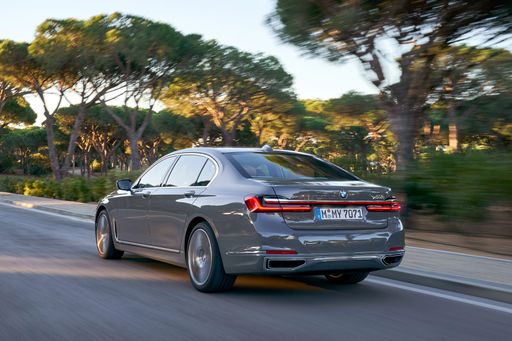 @ press.bmwgroup.com
@ press.bmwgroup.com
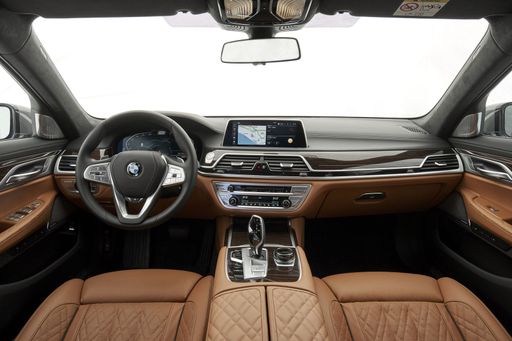 @ press.bmwgroup.com
@ press.bmwgroup.com
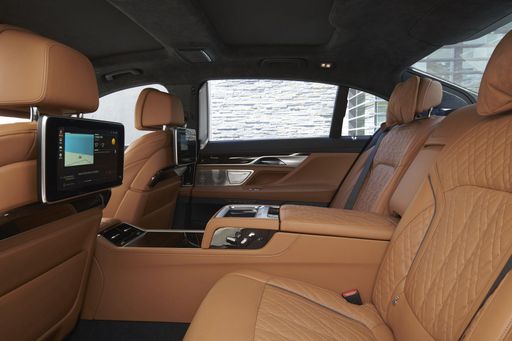 @ press.bmwgroup.com
@ press.bmwgroup.com
Hyundai IONIQ 9
The Hyundai IONIQ 9 is a bold step forward in the automotive world, combining cutting-edge electric technology with a sleek and modern design. This model stands out with its spacious interior and advanced features, ensuring both comfort and convenience for drivers and passengers alike. As Hyundai pushes the envelope in eco-friendly innovation, the IONIQ 9 represents the future of sustainable driving with its impressive range and performance capabilities.
Details

|
|
|
|
|
Kosten und Verbrauch |
|
|---|---|
|
Preis
118200 - 148600 €
|
Preis
68500 - 86800 €
|
|
Verbrauch L/100km
1 - 6.1 L
|
Verbrauch L/100km
-
|
|
Verbrauch kWh/100km
-
|
Verbrauch kWh/100km
19.9 - 20.6 kWh
|
|
Elektrische Reichweite
80 km
|
Elektrische Reichweite
600 - 620 km
|
|
Batteriekapazität
17.60 kWh
|
Batteriekapazität
110 kWh
|
|
co2
23 - 160 g/km
|
co2
0 g/km
|
|
Tankgröße
65 - 74 L
|
Tankgröße
-
|
Maße und Karosserie |
|
|---|---|
|
Karosserie
Limousine
|
Karosserie
SUV
|
|
Sitze
5
|
Sitze
7
|
|
Türen
4
|
Türen
5
|
|
Leergewicht
2255 - 2525 kg
|
Leergewicht
2594 - 2689 kg
|
|
Kofferraum
525 - 540 L
|
Kofferraum
338 L
|
|
Länge
5391 mm
|
Länge
5060 mm
|
|
Breite
1950 mm
|
Breite
1980 mm
|
|
Höhe
1544 mm
|
Höhe
1790 mm
|
|
Zuladung
605 - 665 kg
|
Zuladung
586 - 643 kg
|
Motor und Leistung |
|
|---|---|
|
Motorart
Plugin Hybrid, Diesel MHEV
|
Motorart
Elektro
|
|
Getriebe
Automatik
|
Getriebe
Automatik
|
|
Getriebe Detail
Automatikgetriebe
|
Getriebe Detail
Reduktionsgetriebe
|
|
Antriebsart
Allrad
|
Antriebsart
Heckantrieb, Allrad
|
|
Leistung PS
300 - 571 PS
|
Leistung PS
218 - 428 PS
|
|
Beschleunigung 0-100km/h
4.3 - 5.8 s
|
Beschleunigung 0-100km/h
5.2 - 9.4 s
|
|
max. Geschwindigkeit
250 km/h
|
max. Geschwindigkeit
190 - 200 km/h
|
|
Drehmoment
670 - 800 Nm
|
Drehmoment
350 - 700 Nm
|
|
Anzahl Zylinder
6
|
Anzahl Zylinder
-
|
|
Leistung kW
220 - 420 kW
|
Leistung kW
160 - 315 kW
|
|
Hubraum
2993 - 2998 cm3
|
Hubraum
-
|
Allgemein |
|
|---|---|
|
Modelljahr
2023 - 2024
|
Modelljahr
2025
|
|
CO2-Effizienzklasse
B, F
|
CO2-Effizienzklasse
A
|
|
Marke
BMW
|
Marke
Hyundai
|
BMW 7er Reihe
Ein Meisterwerk der Ingenieurskunst: Der BMW 7er
Der BMW 7er steht seit jeher für Luxus, Innovation und überlegene Leistung im Segment der Oberklasse-Limousinen. In der aktuellen Modellgeneration kombiniert BMW innovative Technologien mit bewährter Ingenieurskunst, um ein Fahrzeug zu schaffen, das sowohl Fahrkomfort als auch dynamische Leistungsfähigkeit auf höchstem Niveau bietet.
Motorenvielfalt und Effizienz
Die aktuelle Angebotsvielfalt des BMW 7er vereint traditionelle Dieseltechnologien mit modernsten Plug-In-Hybrid-Optionen, jede mit Allradantrieb und einem präzisen Automatikgetriebe. Der Diesel Mild-Hybrid mit bis zu 300 PS bietet eine kraftvolle und gleichzeitig effiziente Fahrweise mit einem Verbrauch von nur 6,2 L/100 km. Die Plug-In-Hybridvarianten glänzen mit einer Systemleistung von bis zu 571 PS und kombinieren kraftvolle Beschleunigung mit einem beeindruckend niedrigen Verbrauch von lediglich 1,1 L/100 km bei einer rein elektrischen Reichweite von 77 bis 79 km.
Elegantes Design und geräumiger Innenraum
Mit einer Länge von 5.391 mm, einer Breite von 1.950 mm und einer Höhe von 1.544 mm präsentiert sich der BMW 7er mit einer anmutigen und souveränen Erscheinung. Der großzügige Innenraum bietet Platz für fünf Insassen, die von hochwertigsten Materialien und modernster Technologie umgeben sind. Der Kofferraum mit einem Volumen von 525 bis 540 Litern bietet ausreichend Stauraum für längere Reisen.
High-Performance und dynamisches Fahrvergnügen
Mit einer Beschleunigungszeit von nur 4,3 bis 5,8 Sekunden von 0 auf 100 km/h und einer Höchstgeschwindigkeit von 250 km/h bietet der BMW 7er ein unvergleichliches Fahrerlebnis. Die Motoren liefern ein Drehmoment von 670 bis 800 Nm, das durch das innovative Allradantriebssystem optimal auf die Straße gebracht wird. Das Fahrerlebnis wird durch das M Sportpaket und das M Performance Paket nochmals gesteigert, was dem Fahrzeug eine dynamische Note verleiht.
Zukunftsweisende Technologien
Der BMW 7er setzt Maßstäbe in Sachen Technologie und Sicherheit. Mit fortschrittlichen Assistenzsystemen, einer hochpräzisen Navigation und einem intuitiven Infotainment-System sorgt dieses Fahrzeug nicht nur für ein sicheres Fahrgefühl, sondern auch für ein leichtes Handling aller Funktionen. Die Integration zukunftsweisender Technologien erstreckt sich bis zur Elektromobilität, mit einer leistungsfähigen Batterie von 18,7 kWh, die eine umweltfreundliche und leise Fahrt ermöglicht.
Exklusivität und Individualität
Mit einem Preisbereich von 117.000 bis 148.150 Euro positioniert sich der BMW 7er als klares Statement für Exklusivität und individuelle Anpassungsmöglichkeiten. Unterschiedliche Ausstattungslinien wie das M Sportpaket Pro xDrive Steptronic Sport bieten zahlreiche Optionen für eine personalisierte Fahrzeugkonfiguration.
Der BMW 7er bleibt seiner Tradition treu und stellt dennoch eine zukunftsorientierte Interpretation der Luxuslimousine dar. Mit einer perfekten Balance aus Leistung, Komfort und Effizienz bietet der BMW 7er ein Fahrerlebnis, das seinesgleichen sucht.
Hyundai IONIQ 9
The All-New Hyundai IONIQ 9: Redefining Electric Mobility
As the automotive world advances towards a sustainable future, the 2025 Hyundai IONIQ 9 emerges as a powerful testament to the fusion of luxury, innovation, and eco-conscious engineering. Designed as a premium electric SUV, the IONIQ 9 offers a blend of advanced electric performance and cutting-edge technology.
Unmatched Performance and Efficiency
The Hyundai IONIQ 9 arrives in multiple variants, catering to diverse driving preferences with its array of power outputs and configurations. At the core, you'll find either a rear-wheel-drive model or an all-wheel-drive setup. The power output ranges from a robust 218 HP for daily efficiency to an exhilarating 428 HP in the high-performance version.
The efficiency of the IONIQ 9 is equally remarkable, boasting an electric consumption between 19.9 and 20.6 kWh per 100 km. This ensures a substantial range of 600 to 620 km on a single charge, powered by a 110 kWh battery capacity. With a top speed ranging between 190 and 200 km/h and a dynamic acceleration capability that propels the SUV from 0-100 km/h in just 5.2 to 9.4 seconds, the IONIQ 9 is engineered for thrill and precision.
Innovative Technological Features
The Hyundai IONIQ 9 is not just about remarkable performance; it is a technological marvel designed for a sophisticated driving experience. Equipped with an automatic transmission system and a reduction gearbox, the IONIQ 9 enhances driver engagement while maintaining seamless power delivery. The zero-emission SUV carries a CO2 efficiency class of A, symbolizing its commitment to eco-friendly transportation.
Advanced safety and infotainment systems underscore the IONIQ 9’s tech-forward nature. Whether navigating busy city streets or exploring open highways, Hyundai's cutting-edge driver-assistance technologies are ever-present, making each journey secure and enjoyable.
Luxurious Design and Comfort
With dimensions measuring 5060 mm in length, 1980 mm in width, and 1790 mm in height, the IONIQ 9's substantial presence on the road is undeniable. Its 7-seater arrangement accommodates families and group travelers with ease, supported by intelligently designed interiors that prioritize comfort and functionality.
The trunk capacity of 338 liters ensures ample space for luggage, making the IONIQ 9 an ideal companion for those long family trips. Coupled with a payload capacity of up to 643 kg, versatility is at the heart of its design ethos.
A Commitment to Sustainability
The Hyundai IONIQ 9 exemplifies Hyundai's steadfast dedication to a sustainable future. With a curb weight ranging from 2594 to 2689 kg, it is engineered to optimize energy usage while delivering dynamic performance. The zero grams CO2 emission underlines its role as an eco-friendly powerhouse in the electric SUV segment.
As Hyundai continues to innovate and push boundaries, the IONIQ 9 sets a new standard for electric luxury vehicles, offering environmentally conscious drivers a chance to lead the charge in sustainable mobility without compromising on style, comfort, or performance.
Conclusion
The Hyundai IONIQ 9 stands as a beacon of the next generation of electric vehicles. Luxury meets responsibility in this masterfully engineered SUV. With its assortment of technical advancements and a firm commitment to reducing the carbon footprint, the IONIQ 9 not only paves the way for future cars but also transforms how we perceive environmentally responsible driving. As we stride into an era of greener motoring, the IONIQ 9 leads with elegance and purpose, truly a testament to Hyundai's innovation legacy.
Die angezeigten Preise und Daten sind Schätzungen, die auf deutschen Listenpreisen basieren, und können je nach Land variieren. Diese Informationen sind rechtlich nicht bindend.
